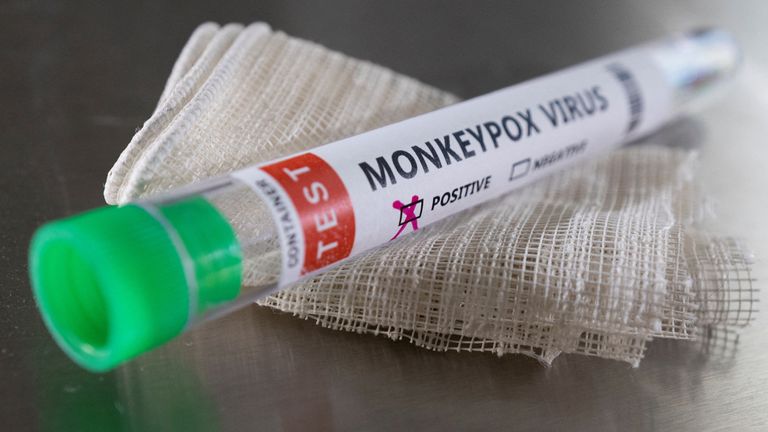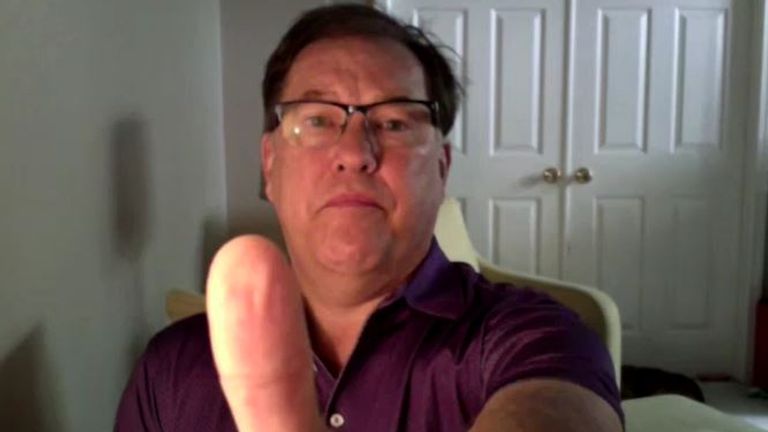[ad_1]
People with monkeypox symptoms should not have sex, according to new guidance issued by health authorities.
The advice was issued by the UK Health Security Agency (UKHSA) and authorities in Scotland, Northern Ireland and Wales in a bid to stem the spread of the virus, as a further 71 cases were identified in England.
The total number of confirmed cases in the UK now stands at 179 since 7 May, with four confirmed cases in Scotland, two in Northern Ireland and one in Wales.
Those with monkeypox were also urged to avoid close contact with others until their lesions have healed and any scabs have dried off, according to the joint guidance issued by
They should also make sure to use condoms for eight weeks after the infection.
People who have had contact with someone with the disease should also be risk assessed and may be told to isolate for 21 days if necessary.
It comes as the World Health Organisation’s top monkeypox expert, Dr Rosamund Lewis, said she does not expect the hundreds of cases reported globally to date to turn into another pandemic.
Elsewhere, Ireland announced its first case on Saturday and a suspected infection there is being investigated.
Read more: What do we know about the UK’s biggest-ever outbreak of monkeypox?
The UKHSA has said the risk to the population “remains low” because the virus, which is transmitted through close physical contact, does not spread easily.
But, they warned it can live on surfaces such as bedsheets or towels.
People are advised to look out for rashes that are unusual to them or an ulceration.
Men who are gay or bisexual are being urged in particular to be aware of symptoms as the UKHSA said the “majority of cases identified to date” had been among that group.
Health protection teams are tracing contacts of people testing positive and are advising those at highest risk to isolate at home for up to 21 days.
Read more: Vet who caught monkeypox in 2003 says new outbreak is a ‘wake-up call for the world’
Despite the recent uptick in cases, a WHO monkeypox expert said she is currently “not concerned about a global pandemic” for monkeypox.
“We are concerned that individuals may acquire this infection through high-risk exposure if they don’t have the information they need to protect themselves”, Dr Rosamund Lewis said.
She warned that anyone is at potential risk for the disease, regardless of their sexual orientation.
Her colleague Andy Seale, strategies adviser at WHO’s department of sexually transmitted infections programmes, said the unusual spread of monkeypox does not mean people should shun LGBTQ+ pride parades this summer.
[ad_2]






